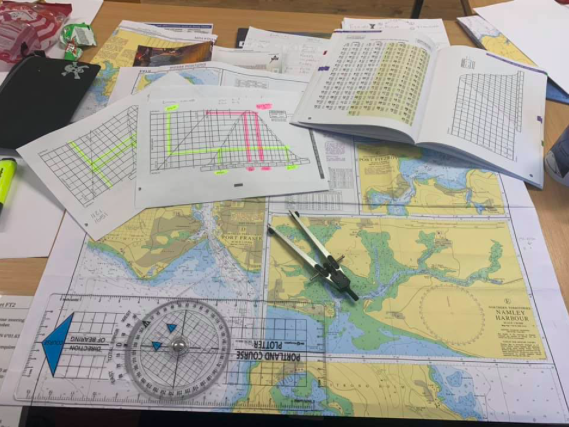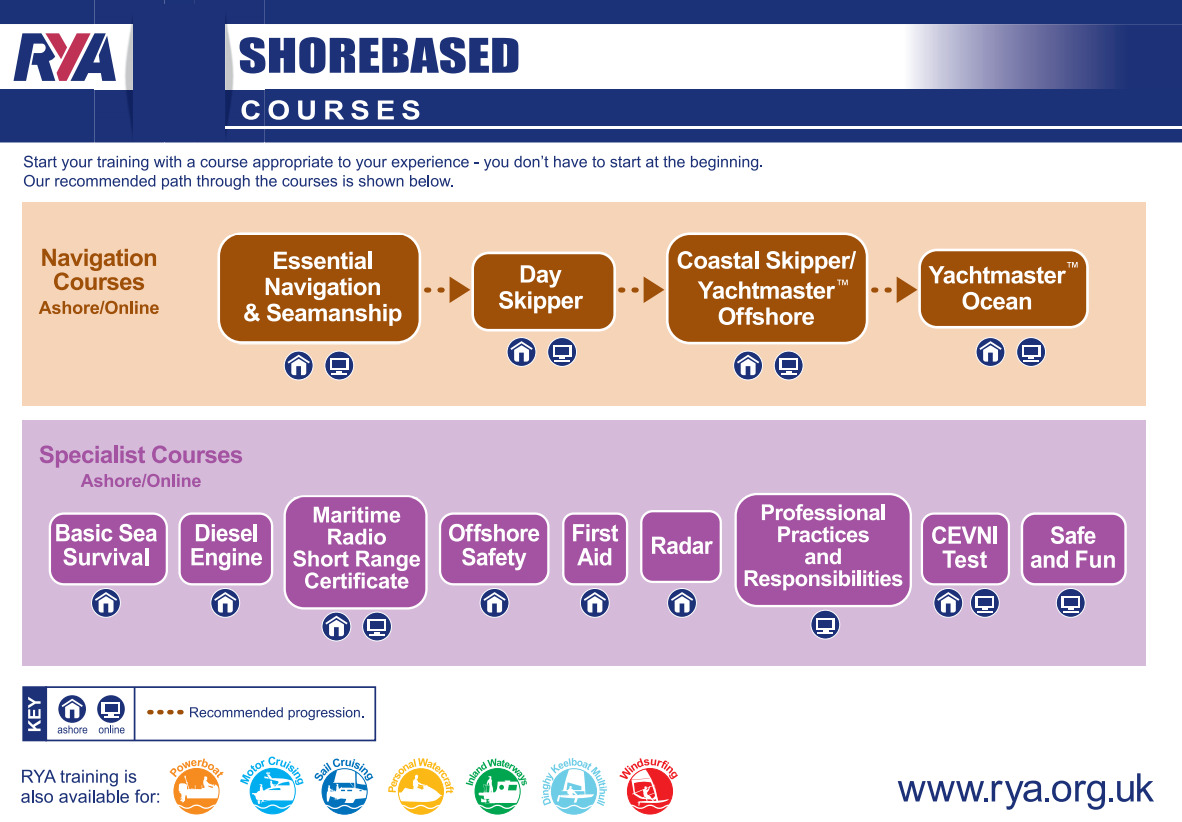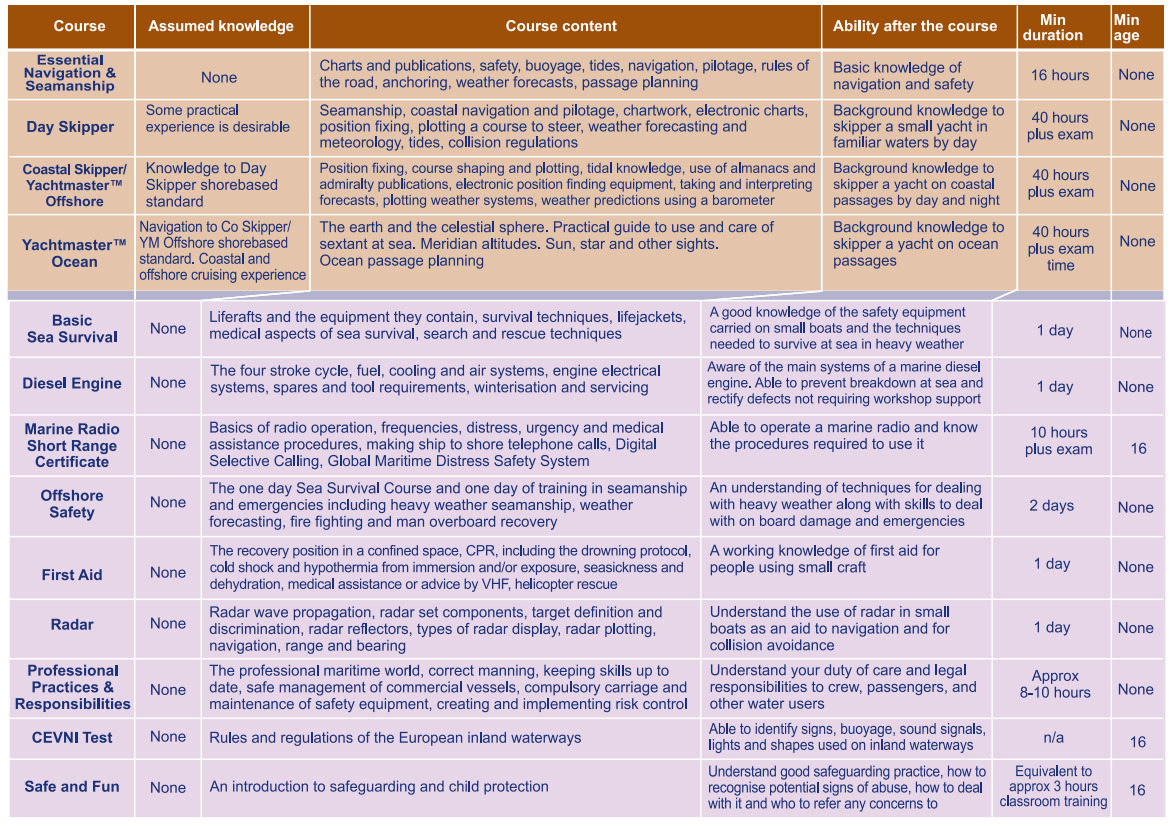RYA Coastal/Yachtmaster Theory Course - 6 Day Solent Based from £349

RYA Coastal Skipper / Yachtmaster Theory Course Details
The RYA stipulates this Yachtmaster theory course must consist of a minimum of 40 hours instructor/student contact time, plus exam time. This fits nicely into 6 days of study and assessments at our classroom complex in Southampton. Solent Boat Training offer this course in two formats; either 6 consecutive days or two 3 day sessions with a 4 day break for consolidation time between them.
Each day will start at 9.00am and finish at about 5.30pm We endeavour to keep homework to a minimum. However, you may be required to do some additional study or exercises each evening.
What are the benefits of the 6 Day 'Split Course' versus the 6 Day 'Consecutive Course'?
By Splitting the 6 Day course over two 3 Day Blocks (Mon-Weds followed by the next Mon - Weds), some students get the opportunity to consolidate, revise and practice some of the areas that have been covered within the first part of the course. For others it allows them the time to continue their normal weekly activities (Thurs-Fri), such as meeting work requirements, etc.
Those that have the time or feel that completing the course over the 6 Consecutive Days, will complete the syllabus in a shorter time scale. This allows those who choose this route, the time to consolidate, reflect and practice all aspects covered during the course, in their own time after completion.
There is no simple answer, it is very much down to the individual and how much time can be set aside.
The course fee starts from £349, including all learning materials. We can loan you dividers, plotters, pens & pencils etc. or feel free to bring your own. We are based at Shamrock Quay Marina in Southampton (Solent), with parking available onsite.
RYA Coastal Skipper / Yachtmaster Theory Classroom vs Online Course
We 'Do Not Offer' this course online. We strongly believe the time spent in the classroom, with other students and our RYA Yachtmaster Instructors, will give you the best results and chance of successful completion. Most students find this contact time invaluable, allowing interaction with others on the course, whilst learning from their different experiences.
We feel our highly experienced and qualified instructor will explain many of the areas of the course, more clearly and in an easy to understand way, far better than just pictures and words. Why pay an average of £300 for computer graphics, when you could pay less for a real life instructor, who can bring the subject matter to life.
It is also worth noting that, unless you attend a RYA Recognised Training Centre for the Assessments, your Theory Certificate gained from an online course, will be marked as "NOT INVIGILATED".
This will make the qualification unsuitable for commercially endorsing a RYA Yachtmaster qualification. Please check if this is suitable for your usage, if completing an online course. If in doubt do call for advice.
Some online course providers do offer an invigilated exam option, usually at an additional cost. Solent Boat Training classroom courses are always invigilated, therefore our courses are accepted by all, without restriction.
Previous Experience Required - Be Prepared
This course is designed to take your existing knowledge as a well practiced Day Skipper Skills and raise it to the next level. Pre-requisite knowledge is a minimum of Day Skipper Theory.
To maximise your chances of achieving your goal and gaining the most from this course, please ensure your existing theory is at the correct level. There will not be time during the course to start any subject from first principles.
There are many different ways and resources that will allow you to 'Brush Up' those skills and key knowledge areas, in preparation for the RYA Coastal Skipper/Yachtmaster Theory Course.
The RYA's G158 - (RYA Yachtmaster Scheme Syllabus and Logbook) will offer you guidance as to what will be covered during this course.

RYA Coastal Skipper Yachtmaster Theory Course Syllabus
1) Position




